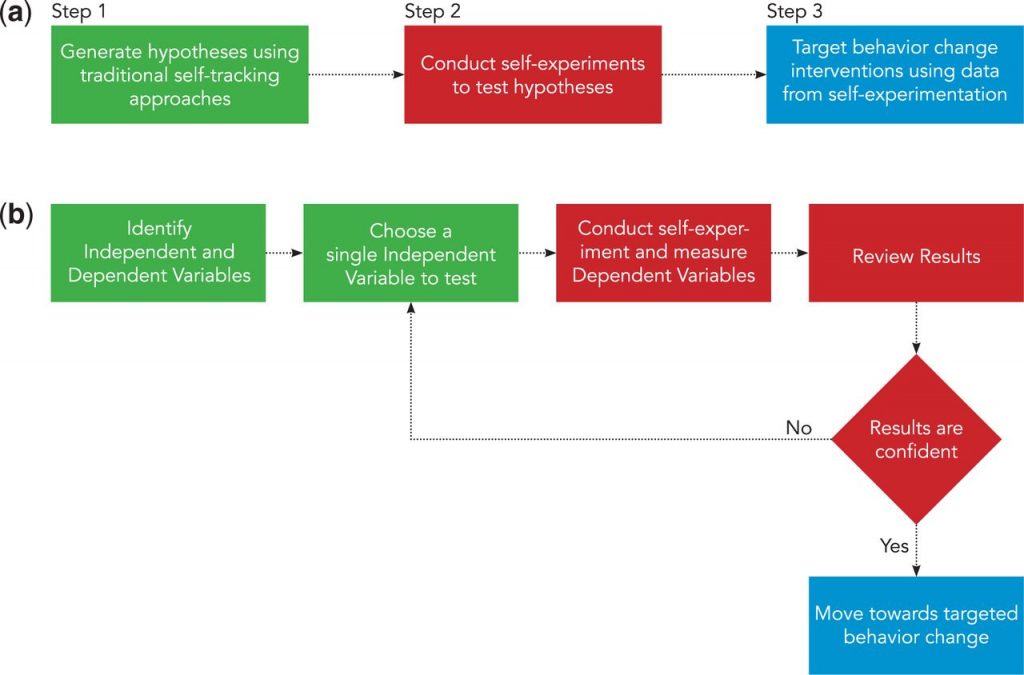People can currently access countless applications, websites, and sensing technologies intended to improve their health. Despite the overwhelming number of options, we have not yet seen widespread, sustained adoption nor the promised health benefits of these technologies. Our previous research has found that people often do not understand what data to collect to help their specific problem and lack scientific rigor in analysis of the data they collect with these devices. Analysis is often done without the consultation of a medical professional and without sufficient understanding of data trends and causal relationships. To help address this issue, we are working toward an approach and set of technology tools that will allow people to conduct self-experiments to better answer their health questions. Our approach consists of guiding people through the process of developing hypotheses, testing those hypotheses through single case study designs, and then helping people interpret the data to make better decisions about their health. This work is funded by the Intel Science & Technology Center on Pervasive Computing and the UW Innovation Award.

People
Ravi Karkar
Jasmine Zia
Roger Vilardaga
Sonu Mishra
James Fogarty
Sean Munson
Julie Kientz
Publication
- Karkar, R., Zia, J., Vilardaga, R., Mishra, S. R., Fogarty, J., Munson, S. A., & Kientz, J. A. (2015). A framework for self-experimentation in personalized health. Journal of the American Medical Informatics Association, ocv150.
